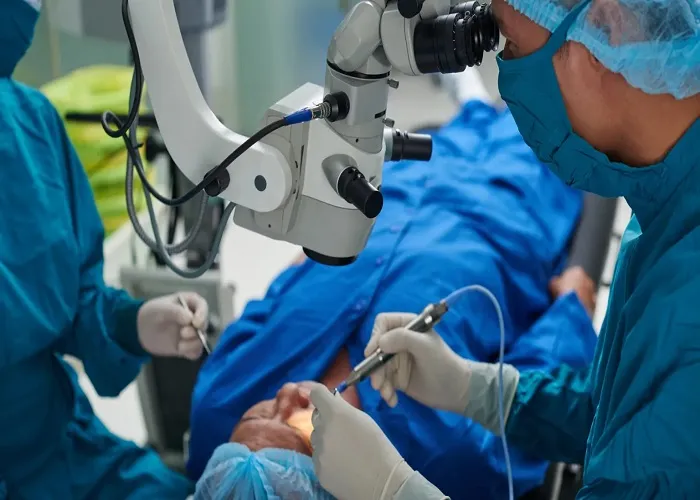Brent Chapman was initially hesitant when his doctor suggested a groundbreaking procedure to restore his sight—implanting one of his own teeth in his eye. The idea seemed unconventional, but after hearing about a successful case in Australia, Chapman, who is blind in both eyes, agreed to move forward with the surgery.
“I spoke to a woman in Australia who had the procedure, and she had been completely blind for 20 years. Now, she’s snow skiing,” said Chapman, 33, from North Vancouver. “It sounds a bit crazy, like something out of science fiction.”
Chapman is one of three Canadians undergoing the rare procedure, known as osteo-odonto keratoprosthesis (OOKP), at a British Columbia hospital this week. The surgery, which has never been performed in Canada until now, involves using a patient’s own tooth—usually a canine—to restore sight.
The Procedure
OOKP involves extracting a patient’s tooth, placing a plastic optical lens inside it, and then implanting the tooth-lens combination into the eye. The idea behind using a tooth is that dentine, the hard substance inside teeth, is strong enough to support the lens and seamlessly integrate into the eye.
Dr. Greg Moloney, an ophthalmologist at Mount Saint Joseph Hospital in Vancouver, explained that teeth are an ideal casing for the lens because they are made from dentine, the hardest substance in the human body. “There is no risk of rejection because we are using part of the patient’s own body,” he said during an interview with As It Happens host Nil Kåksal.
A Rare and Complex Surgery
While the tooth-in-eye surgery is decades old, it has never been performed in Canada until now. Dr. Moloney, who has previously carried out seven successful procedures in his native Australia, led the surgeries this week. He said all the procedures went smoothly, although the patients will be closely monitored in the coming months.
The surgery is not suitable for everyone. It is specifically designed for people who have severe corneal blindness, which can be caused by autoimmune diseases, chemical burns, or other traumas that affect the front of the eye. The procedure is only an option for patients who still have healthy retinas and optic nerves.
Dr. Moloney emphasized that OOKP is often considered a last resort, used when all other treatment options have failed. He acknowledged that the procedure can seem shocking, even to other medical professionals. “It’s a rare operation that most people, even eye surgeons, have never heard of,” he said.
The Potential for Long-Term Availability
Although the surgery is rare and complex, Dr. Moloney hopes to make it more widely available in Canada. “If all goes well with these surgeries, we hope to expand the availability of this procedure in the long term,” he said.
For Chapman and others like him, the procedure offers a chance at restored vision, and perhaps even a return to everyday activities. “It’s an exciting opportunity,” Chapman said, reflecting on the potential to regain sight after years of blindness.
As OOKP continues to make strides in Canada, the procedure could become a critical option for those struggling with severe vision loss, offering a new path to improved quality of life.
Related topics:
- Tralee Dentist Honored with Colgate Caring Dentist of the Year 2024 Award
- Sponsor Spotlight: Local Dentist Offers Affordable Care for Uninsured Adults
- Canada Dental Care Plan 2024: Expanded Coverage And New Services

